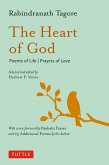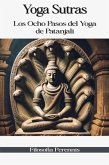The Rigveda is the oldest known scripture in human history, dating back to around 1500 BCE. It is a collection of hymns composed in Vedic Sanskrit, an ancient Indo-European language that forms the foundation of classical Sanskrit. Considered the earliest and most sacred text of Hinduism, the Rigveda is the first of the four Vedas, the primary scriptures of the Vedic tradition.
The Rigveda consists of 1,028 hymns (suktas) arranged into 10 books (mandalas). These hymns are dedicated to various deities and cosmic forces, including Agni (fire), Indra (thunder and war), Varuna (cosmic order), and Surya (the sun). The hymns praise the power of nature, the universe, and the divine, reflecting the beliefs and spirituality of early Vedic society. They were originally passed down orally for generations using precise memorisation techniques before being written down in scripts like Brahmi and Devanagari.
Beyond religious devotion, the Rigveda contains profound philosophical reflections. The Nasadiya Sukta (Hymn of Creation) questions the origins of the universe, pondering whether even the gods know how creation began. The text also introduces the concept of Rita (cosmic order and truth), which later evolved into the Hindu idea of Dharma (duty and righteousness). These philosophical insights laid the foundation for later Hindu texts, including the Upanishads, Mahabharata, and Ramayana.
The Rigveda also offers valuable information about early Vedic society. It provides insights into social structure, rituals, warfare, agriculture, and emerging class divisions. The text references the varna system, which later developed into the caste system, dividing society into four classes: Brahmins (priests), Kshatriyas (warriors), Vaishyas (traders), and Shudras (labourers).
Scholars worldwide have studied and translated the Rigveda, including Max Müller and Ralph T. H. Griffith, making it accessible beyond India. It continues to be used in Hindu rituals, prayers, and ceremonies. Additionally, its linguistic significance has helped researchers understand Indo-European languages, as its structure shares similarities with ancient Greek, Latin, and Persian.
The Rigveda remains a timeless text, offering wisdom on spirituality, philosophy, ethics, and the universe. Its profound insights into human thought and existence make it not just a religious scripture but also a remarkable historical and literary treasure.
Dieser Download kann aus rechtlichen Gründen nur mit Rechnungsadresse in A, B, CY, CZ, D, DK, EW, E, FIN, F, GR, H, IRL, I, LT, L, LR, M, NL, PL, P, R, S, SLO, SK ausgeliefert werden.









